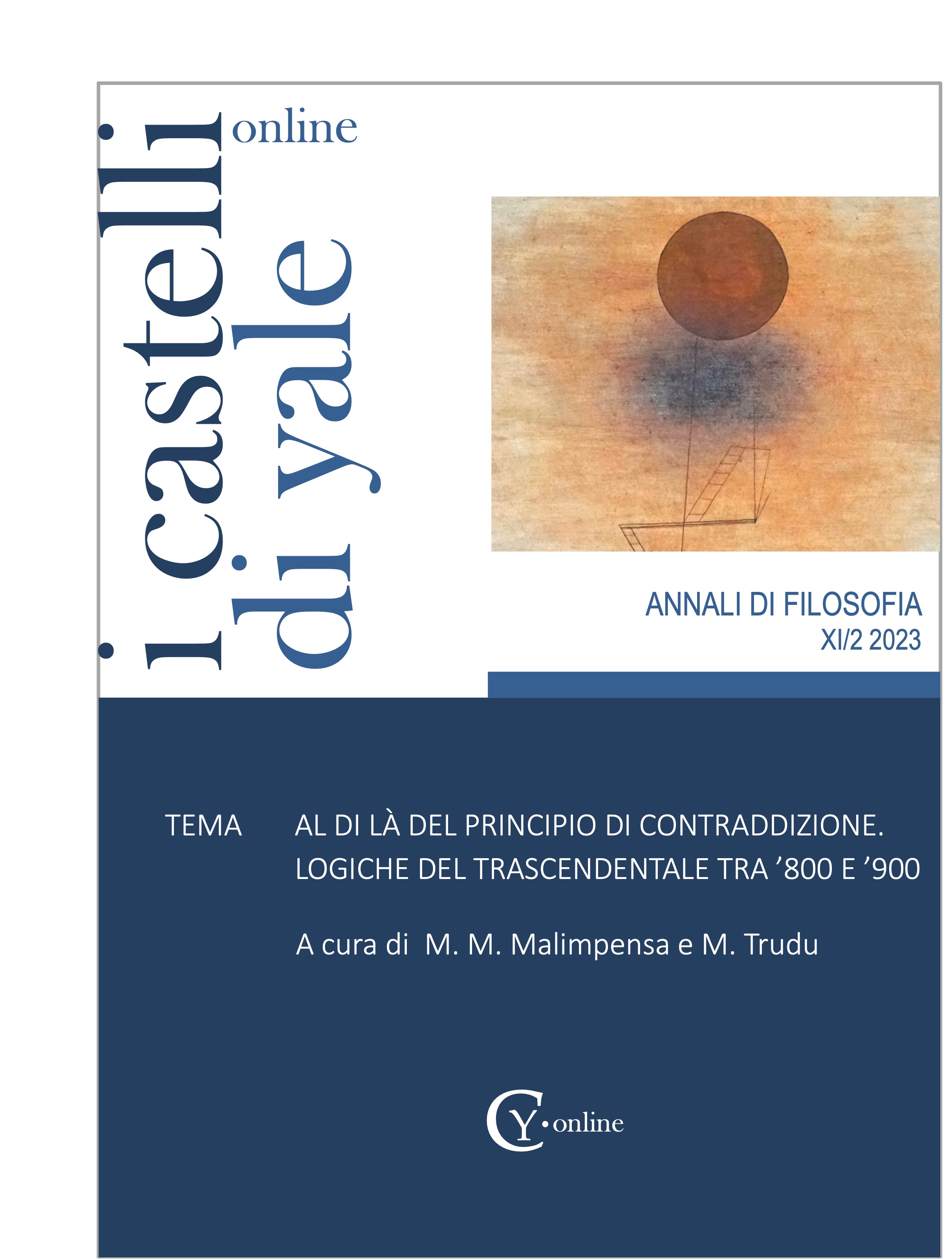Lo s-terminato esistere
La co-appartenenza di apollineo e dionisiaco da una prospettiva infra-heideggeriana
DOI:
https://doi.org/10.15160/2282-5460/2858Keywords:
Apollonian, Dionysian, Nietzsche, Heidegger, HölderlinAbstract
This paper explores the deep philosophical affinities between Martin Heidegger and Friedrich Nietzsche, focusing on their shared understanding of the Apollonian and Dionysian dichotomy and its implications for the essence of human existence. The analysis begins by examining Nietzsche's concept of the unity of the Apollonian and Dionysian as a fundamental aspect of human identity, despite Nietzsche's own unawareness of its metaphysical significance. Heidegger, in turn, recognizes this insight as an epochal breakthrough in Nietzsche's thought, surpassing the boundaries of traditional metaphysics. The discussion further explores the role of Hölderlin as a crucial figure in both Nietzsche's and Heidegger's philosophical trajectories. It argues that in the co-appropriation of the Apollonian and Dionysian and the concept of Ereignis (the Event), both philosophers reveal a profound engagement with the interplay of foundation and abyss. This interplay, according to Heidegger, constitutes the historical-epochal opening of being and provides a perspective for understanding the essence of Dasein as the Ek-sistence (existential being). The paper challenges Heidegger's reductionist interpretation of Nietzsche as merely the completion of metaphysics and suggests a closer affinity between Nietzsche and Hölderlin. It concludes by emphasizing the transformative potential of embracing the interplay of the Apollonian and Dionysian and the reevaluation of human essence based on existence, which enables a new understanding of the world and its inherent mysteries.
Downloads
Published
Issue
Section
License
Copyright (c) 2024 Gianmaria Avellino

This work is licensed under a Creative Commons Attribution-NonCommercial-NoDerivatives 4.0 International License.


